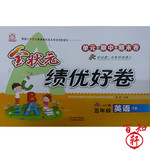题目内容
________common ________many people, he prefers classical music to popular music.
- A.×; with
- B.In;with
- C.×;to
- D.On;with

 99加1领先期末特训卷系列答案
99加1领先期末特训卷系列答案 百强名校期末冲刺100分系列答案
百强名校期末冲刺100分系列答案 好成绩1加1期末冲刺100分系列答案
好成绩1加1期末冲刺100分系列答案 金状元绩优好卷系列答案
金状元绩优好卷系列答案Most of the 20th century has been a development on the Industrial Revolution taken to an extreme: people now own more products than ever before; there are enough unclear weapons to destroy the earth several times over; there is hardly any forest left and pollution has got to the point where we buy water. Within a few years I predict you will be able to buy air. (There once was a time when you didn’t need to buy food or shelter either.)
Important developments in the last century are the breading down of the class structures left over from the Industrial Revolution stage, bringing with it the empowerment of the “common man ”: the working day is set by law to only 8 hours a day, everyone has the vote, the media has less obvious government control, people have landed on the moon, sent spacecrafts to Mars and so on. Families have also shrunk drastically(强烈地); the nuclear family came about, and especially in the last half of the 20th century, one-parent families are becoming more common. This shrinking in the size of the family shows the increased independence of people—once upon a time people had to live in large groups to survive.
As humans have “become the gods”, they have realized their individuality and independence and taken their control of the world to an extreme. In many countries the land is almost completely used in the land is almost completely used in the production of food and as living space and they live in small cities which are entirely human constructed, made from materials which are also entirely human constructed(concrete, bricks) with hardly any remains of nature. Weeds are poisoned because they are messy; even parks have trees grown in tidy lines; grass is mowed to keep it short and so on. I think the massive drug “problem” troubling people is a result of too much of this influence, humans needing to escape the stark world they have created by entering fantasy worlds.
Over the last 100 years, the 20th century consciousness has spread throughout the world; most of Asia has been thoroughly “Westernized”, and most of the Third World is being overrun by western ways of doing things and living.
【小题1】What’s the author most concerned about?
| A.The influence of pollution. |
| B.Strong effects of development. |
| C.Changed positions of humans as gods. |
| D.The process of the Industrial Revolution. |
| A.Objective. | B.Tolerant. | C.Vague. | D.Negative. |
| A.Unfair. | B.Illegal. | C.Dull. | D.Violent. |
| A.Men’s individuality is over controlled. |
| B.People have damaged nature too much. |
| C.Men’s independence is partially limited. |
| D.People show concern for nuclear families. |
Mark Twain is a name not usually connected with Broadway(百老汇), but now his play “Is He Dead” will receive its first public performance on November 29.
“Is He Dead” was written by Mark Twain in 1898 but was never performed. It was rediscovered in 2002 by Shelley Fisher Fishkin, an English professor and director of the American Studies Program at Stanford University. It was published the following year by the University of California Press.
The story is about a group of poor artists who fake the death of their friend in order to increase the value of his work.
“Is He Dead” is set in France in the 1840s and centers on the French painter Jean-Francois Millet. “Millet was probably the most popular European painter in the United States in Twain’s lifetime,” Fishkin said in a telephone interview. “Americans greatly admired him because he focused on the life of the common man and the common woman.”
According to Fishkin, “Is He Dead” is a satire(讽刺) about how value is created in the art world. Twain wrote the play when he was coming out of the hardest time of his life.
【小题1】What’s “Is He Dead” about?
| A.The death of a poor artist in the 1840s. |
| B.A trick played by a group of poor artists. |
| C.A story about the French painter Jean-Francois Millet. |
| D.An experience Mark Twain had gone through. |
| A.the play was one of Mark Twain’s early works |
| B.no one knew the play until 2002 |
| C.Fishkin is an expert on Mark Twain’s works |
| D.the play was published in 2002 |
| A.he was a famous French painter at that time |
| B.he focused on the life of ordinary Americans |
| C.his works showed respect for ordinary people |
| D.Mark Twain agreed on his thoughts |
| A.had experienced several difficult times for no money |
| B.was a good novelist but a bad playwright(剧作家) |
| C.was a writer who only cared about ordinary people’s life |
| D.was dissatisfied with some methods of creating the value of art work |